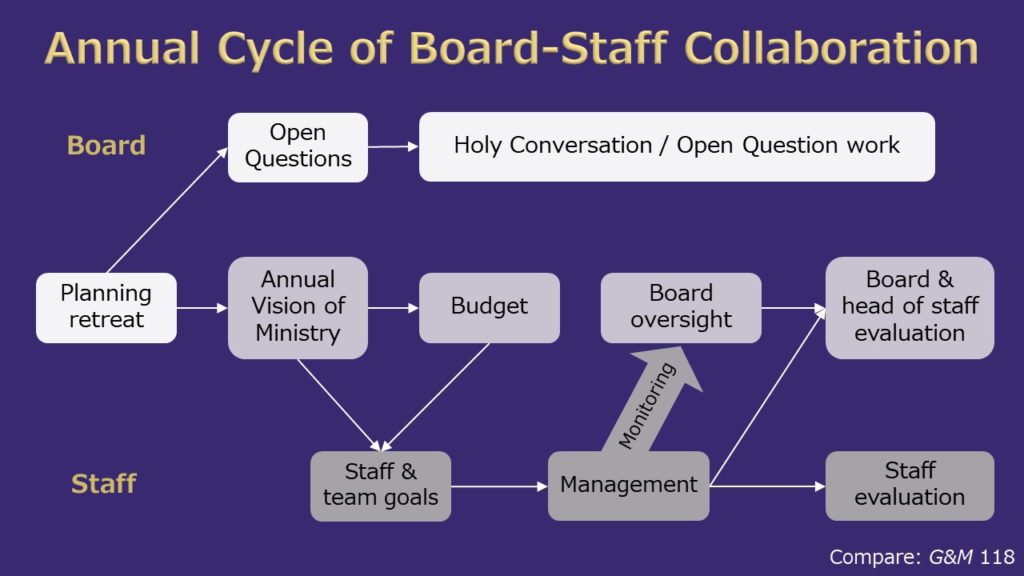Around the world this fall, boards gather at their online tables to ask, “What kind of congregation can we be in this strange time? When and how can we return to ‘normal,’ and what will that even look like?” Some deny the possibility of planning in such times, but without deliberate planning, habit and momentum rule. Without structure, planning conversations run in circles or explode in conflict. At this time even more than most, boards need structured ways to talk about the future.
PERSPECTIVES articles
Christian Nationalism and Congregations

Christian Nationalism is a significant force in American civic life, yet “Christianity” and “Christian Nationalism” are two very different species. The former is a religious movement and the latter is a political one. Yet because many Christians (almost all of them white) have imbibed the tenets of Christian Nationalism, Christian leaders must contend with its presence.
Five Assumptions Failing Us Now
“Growth in membership is the primary indicator of congregational health and vitality.” The pandemic is challenging this and other longstanding assumptions about engagement, belonging, and membership. We must carefully examine all of our assumptions—otherwise, we risk creating barriers to belonging for people trying to engage with us in new ways.
Working Remotely: Challenges and Opportunities
How is remote work changing us, and which of the changes will remain once the pandemic is over? What problems are arising as staff work from home, and what advantages are turning up? What does this all tell us about the future of work in congregations? I am working on an Augsburg Fortress book about working remotely, and I want to share some of my early findings with you.
Urgency Works, but Is It the Only Driver of Change?

It is too soon to create a definitive list of all the things we will have learned from this pandemic, but I’m clear about one thing—John Kotter was right that urgency does drive change. Under pressure from the Covid-19 pandemic and outrage over police violence against black people, congregations have made changes I thought I would never see. Will we be able to continue innovating when extreme urgency no longer forces us to do so?
How to Be Transparent About Money

“I wish we were more transparent about our finances.” For almost every problem congregations face, transparency is one proposed solution. Treasurers and business managers—who work hard to produce honest, accurate reports—often are surprised by the implication that they’re hiding something. Transparency is good, but flooding people with more data rarely solves the problem. True transparency requires a plan to give financial information to each of four distinct audiences.
Pandemics and Protests as Accelerators of Change
Many phrases commonly used to describe the coronavirus pandemic have revolutionary overtones. Covid-19 is the “great disruptor,” the “medical disaster,” and the “economic catastrophe.” Writers assert that Covid-19 “will change the workplace forever,” arguing that its effects are both “global” and “enduring.” Reporting on the wave of unrest sparked by police killings of unarmed African Americans carries similar tones. Reporters describe the scope of the unrest as “unprecedented,” while the level of polarization in the country is “historic.”




